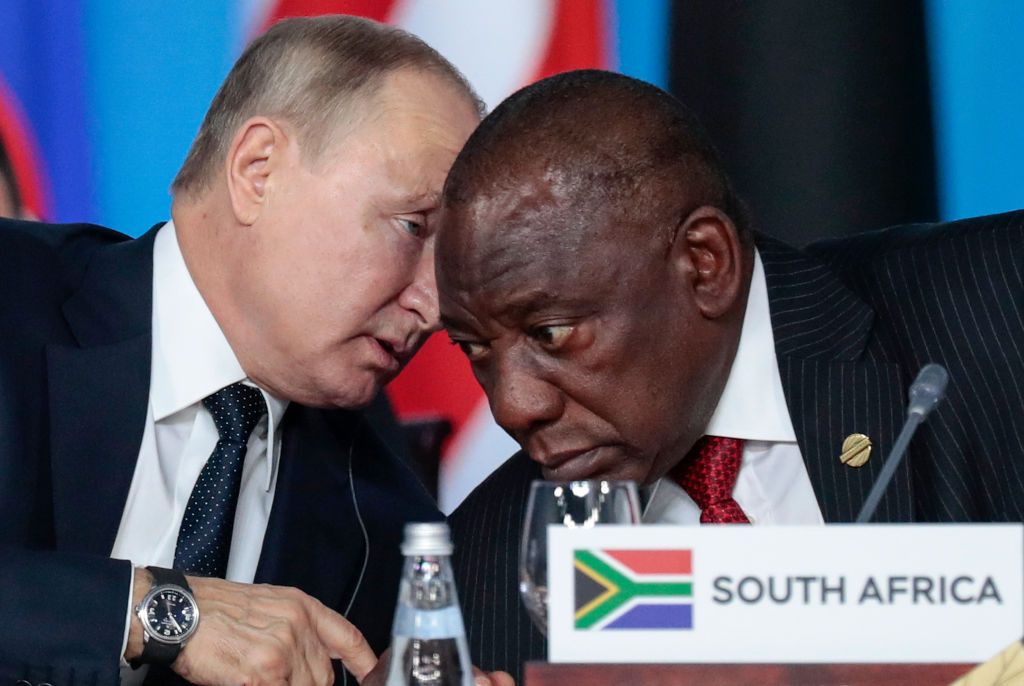AP: African delegation to discuss Ukrainian grain, Russian fertilizers with Kyiv, Moscow
A delegation of six African leaders set to hold talks with Kyiv and Moscow aims to "initiate a peace process" but also agree on increasing Ukrainian grain exports and easing shipments of Russian fertilizers, a key mediator told the Associated Press.
Presidents of South Africa, Senegal, Egypt, the Republic of Congo, Uganda, and Zambia plan to visit Ukraine and Russia in June on what they position as a peace mission.
According to Jean-Yves Ollivier, an international negotiator who has been working for six months to organize the talks, the leaders also want to discuss possibilities for more prisoner exchanges between Russia and Ukraine.
Ollivier arrived in Moscow on May 21 and will soon head to Kyiv to work out the "logistics" of the upcoming negotiations, the publication wrote. Both President Volodymyr Zelensky and the Kremlin have agreed to host the African delegation.
"We are not dreamers… Unless something happens, I don't think we are going to finish our first mission with a ceasefire," Ollivier told the AP. "It starts with signs. It starts with dialogue. And this is what we are going to try to do."
Russia's all-out war prevented Ukraine, one of the world's top grain suppliers, from exporting agricultural products from its Black Sea ports. Africa has been one of the most affected continents.
On May 17, the Black Sea Grain Initiative, allowing Ukraine to continue exporting its grain amid Russia's full-scale war, was extended for 60 more days. The African leaders would like to see the deal extended further, the mediator said.
The delegation also wants to make it easier for African countries to receive supplies and pay for Russian fertilizers, as Moscow's limited access to SWIFT has complicated such payments. Russian fertilizers have not been subject to international sanctions, but the U.S. and some Western countries have restricted the movements of Russian cargo ships.
"We will need to have a window whereby SWIFT will be authorized for this specific point," Ollivier said in the AP interview.
"That will be on the table, and we hope that in that case, we will gain the support of the Russians for the grains from Ukraine, and we will gain the support of the Ukrainians to find payments and shipments possible for the Russian fertilizer."












